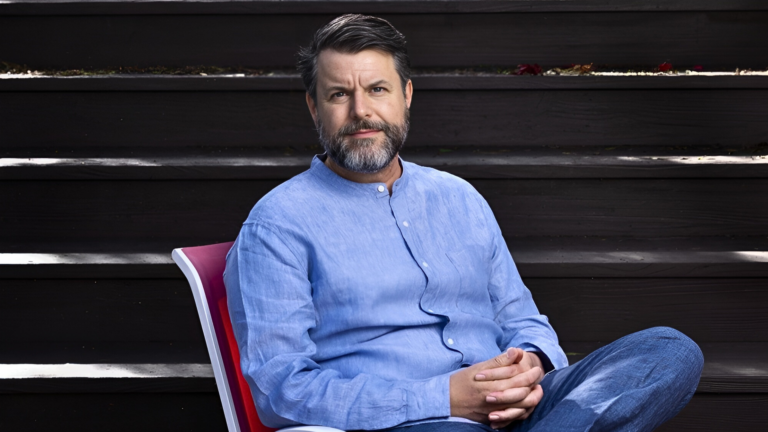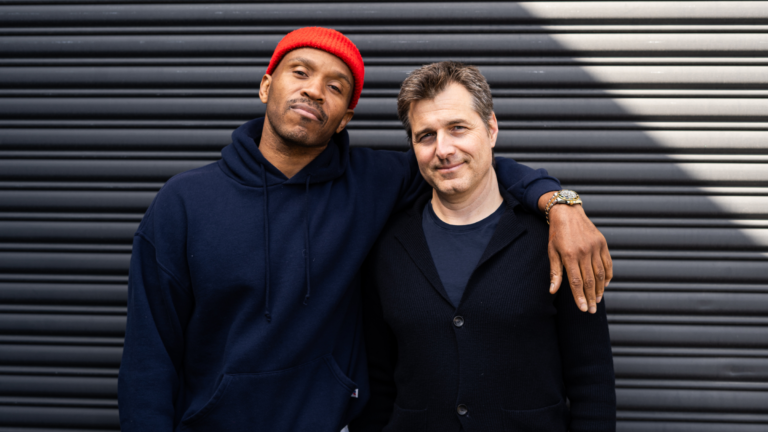This week’s conversation is with Dr. Melanie Joy, a Harvard-educated psychologist specializing in relationships, communication, and social change.
Melanie is best known for her groundbreaking theories on the psychology of violence, nonviolence, and building healthy relationships.
Her analyses have helped explain why people engage in “nonrelational” behaviors—behaviors that harm other people, animals, the planet, and themselves—as well as how to change this pattern
Melanie is the eighth recipient of the Ahimsa Award—previously given to the Dalai Lama and Nelson Mandela—for her work on global nonviolence; and she also received both the Peter Singer Prize and the Empty Cages Prize for her work developing strategies to reduce the suffering of animals.
Her mission is to raise awareness of the obstacles preventing people from interacting in ways that create a sense of mutual connection.
These obstacles are both internal (psychological) and external (social), and they are a key reason why we act against our own interests and the interests of others—often without realizing that we’re doing so.
With awareness, we are better able to think freely and act compassionately, to create healthier and more fulfilling relationships and a more equitable and sustainable world.
“A healthy relationship is one that reflects integrity and honors dignity and that leads to greater connection.”
In This Episode:
Why she chose to study psychology
My parents got divorced when I was very young, both of them had different relationships and eventually remarried. We moved around a lot and I ended up with quite an extended family. I was able to have some great moments of joy, of course, in my childhood, and I had the kinds of struggles in my childhood that I would later see really encouraged me to think more deeply about relationships.
Which relationships were important growing up?
One of my most important relationships was with my dog. I think a lot of children who have a companion animal do feel that way. We live in a society that’s devalues the non-human relationship where most people don’t even think of it as a relationship, but of course, it is. We’re always in a relationship with other individuals, human and non-human and we’re also always in relationship with ourselves.
Why did she stop eating meat?
I ate a hamburger that would land me in the hospital, on intravenous antibiotics. I was wildly ill, and I never ate meat again after that, and then something started percolating in me and again, I wasn’t really conscious of this, I was just like the last thing you eat disgusts you.
What she discovered when she went vegan
I needed to learn how to cook for myself and I had to cook vegetarian, and then eventually vegan, and I didn’t know what I was doing. This investigation led me to information about animal agriculture and what I learned, shocked and horrified me. I just could not wrap my brain around the extent of the suffering and environmental damage.
The psychology of eating animals
Why is it that most people are contributing to something that’s completely antithetical to their core values? And their true feelings about other animals in general. How is it that compassionate people who care about their impact on others? People who are naturally wired to feel empathy for others. We know that. Nevertheless, again, act against their own values and their own interests and the interests of others without really seeing what they’re doing. What is going on here psychologically?
What is Carnism?
What I identified essentially is that there’s an invisible belief system that I call Carnism which is essentially the opposite of veganism. How is it that we look at a hamburger and feel appetized? But if somebody told us that hamburger had been made from a golden retriever, we would immediately know not see it as food, but to see it as a dead animal, what it is, and instead of feeling appetized, feel disgusted and probably even morally outraged.
The main focus of her work:
The big question that I was asking myself over the years was, “What is it that causes good people to participate in harmful behaviors?” What I recognized was that all of I should say, the most pressing problems in our world and in our personal lives I should say, they have a common denominator, of relational dysfunction.
Her purpose:
I believe that building relational literacy, the understanding of an ability to practice healthy ways of relating is fundamental to creating a more compassionate world, but on a broader level, yeah, my life’s purpose is to reduce suffering and create, help cultivate a healthier and more compassionate world.
The key to healthy relationships
The formula for a healthy relationship can be boiled down to a relationship in which you practice integrity.
That means you practice the core moral values of compassion. Sometimes called caring and justice or fairness. You practice integrity, and you honor dignity in that process. That’s what it would boil down to and this leads to a greater sense of connection.
Practicing integrity
When you practice integrity, you’re basically treating the other person as though the way you would want to be treated, right? How can I be compassionate toward you? How can I treat you with what I think is fair?
Honoring dignity
That simply means you perceive and treat the other or yourself, if you’re relating to yourself as having fundamental worth. No less worth than anybody else on the planet, we all have a core need to feel fundamentally worthy.
Where do relationships go wrong?
One thing that we can do is to try to avoid defining the other person’s reality. When you define somebody’s reality, what you essentially do is you make yourself an expert on their experience. We all do this because we’ve learned to do it.
The importance of compassion
Most of us relate to ourselves in a way we would never tolerate from somebody else. You could hear the voice in our head beating us up. Part of the growth in relationships, part of the beauty of relationships is their tolerance for imperfection and their celebration of imperfection, healthy relationships have wiggle room for people to be their complicated, messy screwed up selves.
We are hard-wired to be reactive
Studies have shown that when people feel that their dignity is harmed or threatened, essentially that when we feel we’re not being respected by others treated with respect, treated the way that they would want to be treated if they were in our situation, we automatically become defensive. And when we’re defensive, this means we’re in a state of heightened arousal.
What makes a resilient relationship
If you think about relationships in your life that you would consider pretty good relationships, chances are those are relationships where you feel a fairly strong connection with the other person and you probably feel fairly secure in that relationship.
The foundation of all relationships
Integrity is the North Star of security and connection or relationship resilience. If you think again back to your own life, chances are you feel more connected with people and more secure with them when you trust that they’re going to practice integrity towards you. When you trust that they’re going to perceive you not as less than they are, not as less worthy of being treated with respect essentially. They’re really going to honor you as an individual and not see you as less than.
The psychology of oppression
The two most disconnecting of emotions, problematic of emotions are shame and contempt and these two emotions are, there are two sides of a coin.


